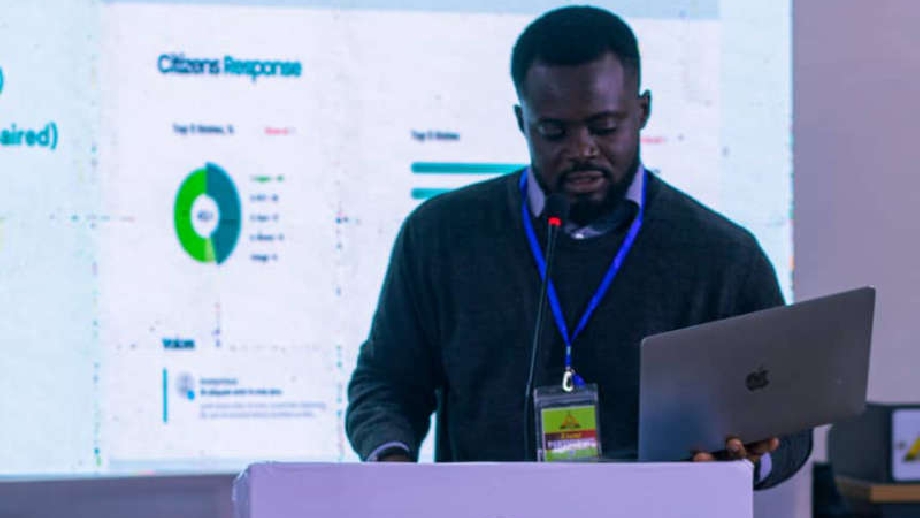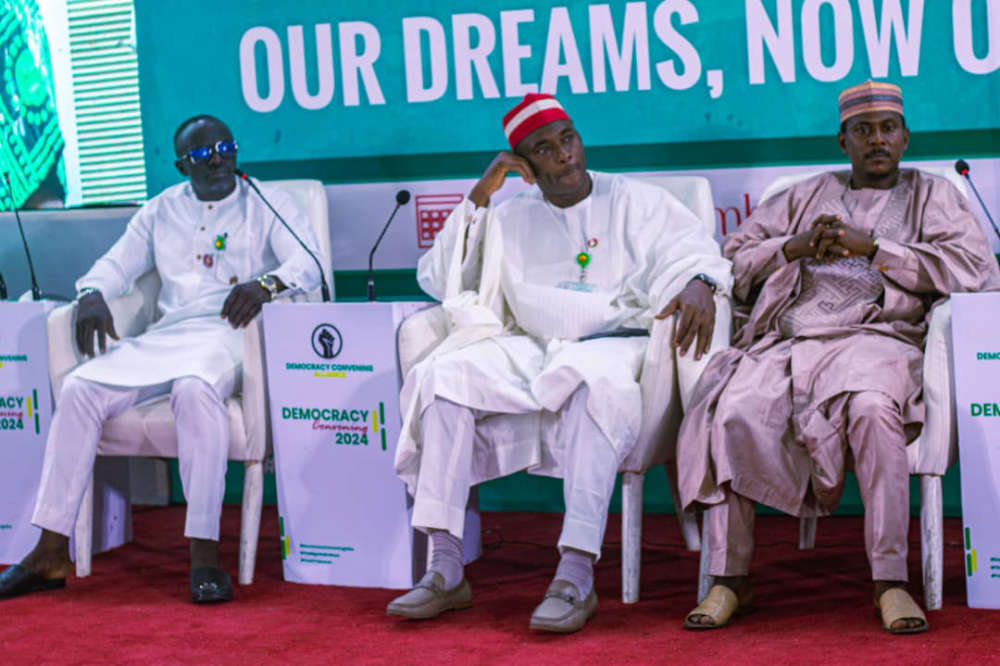
A coalition of over 24 Nigerian youth civil movements, Youth Alliance, has presented a charter of demands to the House of Representatives Committee on Youths in Parliament.
The coalition also launched its user-friendly Youth TrackIt Accountability Dashboard, where data is collected to track the progress of the charter and the implementation by policymakers.
Titled the Democracy Alliance Charter, the document involves critical issues the alliance intends to use in holding the government accountable and further enhancing Nigeria’s Democracy.
It was presented during a two-day event in Abuja on Monday and Tuesday tagged Democracy Convening 2024, “The Nigeria We Want: Our Dreams, Now Our Action,” a gathering of youth leaders, policymakers, and international partners to reimagine Nigeria’s democracy.
The nine demands presented last year were collapsed into six, focusing on goals for economic empowerment, Sexual and Reproductive Health Rights (SRHR), digital rights, political inclusion, and education.
The Chair of the Chatter Committee, Hassan, delivered the charter on behalf of the alliance, noting the thematic areas of the manifesto.
They include safe and inclusive women's representation in politics, safe, quality, and affordable education; financial inclusion; end to child and forced marriages; digital protection and privacy.
According to Hassan, “For a country with over 65% of young people as its population, the young people are the minority when it comes to decision making and reduced to machinery of the state.”
He also stressed that Nigeria has the lowest women representation in the world compared to Rwanda and Angola, with over 50% representation.
A report by the Inter-Parliamentary Union of the United Nations stated that Rwanda led the world ranking with women accounting for 61.3 percent of seats in the Chamber of Deputies, followed by Cuba and Nicaragua with 55.7 percent and 53.9 percent, respectively.
The IPU report cited Nigeria, where women’s representation in the Senate (the upper chamber) shrank further by 3.7 percentage points in 2023, with only three women elected.
They ranked Nigeria among the bottom five countries globally for women’s representation in parliament.

Rep members - Daniel Asama, Mukthar Umar Zakari, Abdullahi Muazu Gwarzo
In the House of Representatives, just 14 women were elected to the 358-seat chamber, accounting for 3.9% of all MPs.
The charter raised concerns about gender-based violence, citing an incident in Benue where ex-Governor Samuel Ortom reconciled a journalist, Pius Angbo, with his wife, Ifeyinwa Angbo.
Mrs. Angbo had narrated how she was abused by her husband after advising him to cease spending lavishly on ladies and cater for his four children.
Mr. Ortom and some of his cabinet members counseled the couple and enjoined them to embrace peace in their home, sparking mixed reactions.
Commenting on this, Hassan lamented that the root causes of gender-based violence are often overlooked in society.
Responding, however, members of the Young Parliamentarians Forum in the House of Reps. who graced the events, also committed to creating bills and advocating for these concerns.
The member representing Gwarzo federal constituency in Kano, Hon. Abdullahi Muazu Gwarzo, assured to partner with the alliance in achieving the goals.
Committing also to the charter were Hon. Mukthar Umar (Tarauni/Kano), Daniel Asama (Bassa/Jos North), David Ogewu (Oju/Obi – Benue), Sesi Oluwaseun Whingan (Badagry/Lagos) and Muktar Tolani Shagaya (Ilorin West/Asa).
However, Daniel Asama (Bassa/Jos North) noted that every point raised in the charter has already been considered in Nigeria’s constitution, highlighting the lack of policy implementation.


